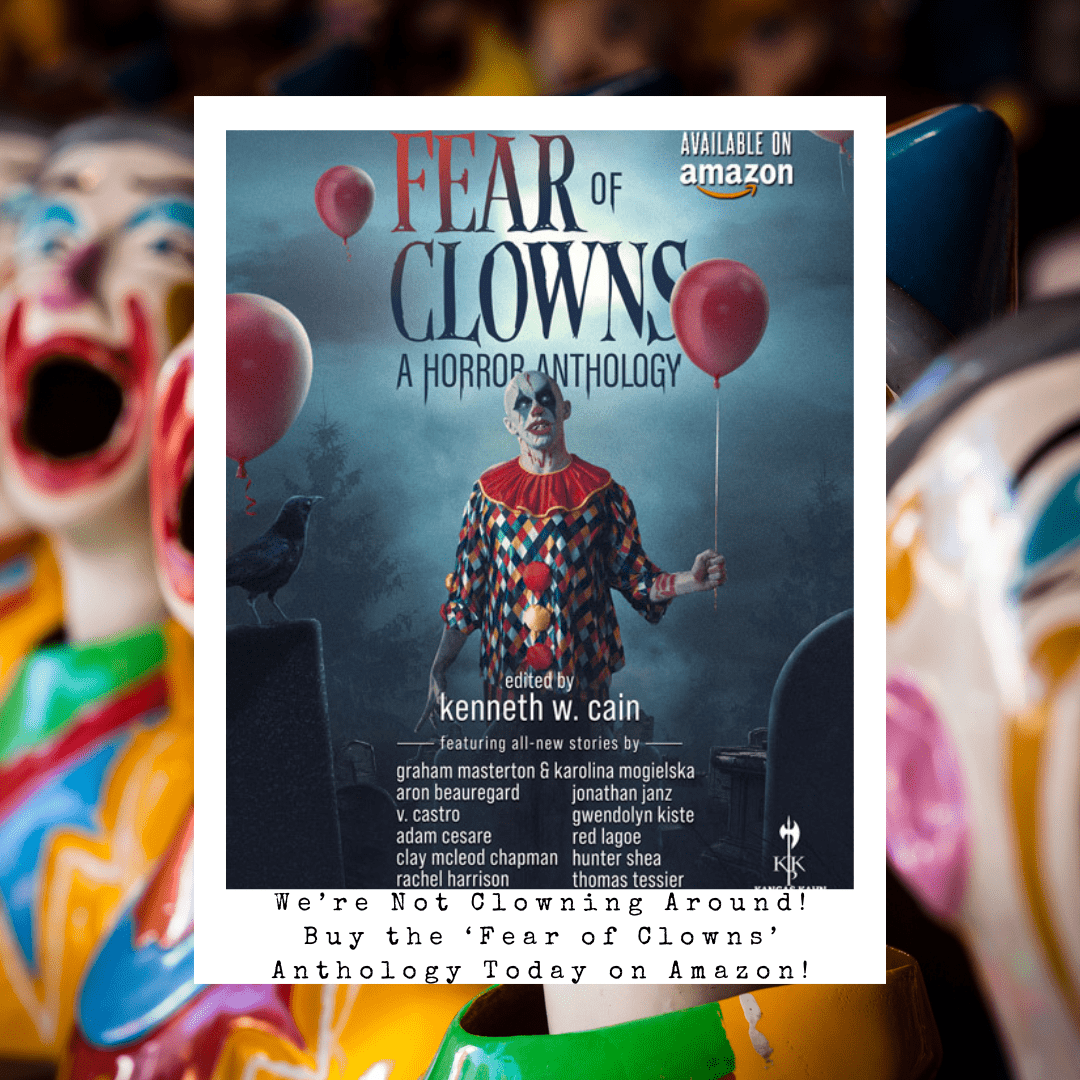Serial Saturday: Don’t Look at Me by Tom Little, Chapter Two
Chapter Two
Ferrill and Grant reached a block of derelict buildings just beyond the convenience station. They stuck to the sidewalk, but it didn’t look like cars used South Street much anymore. The traffic light was out. Ferrill noticed that the windows up and down the street had been broken, with long black fingers spreading out on the surrounding brick. The neighborhood had burned.
Ferrill felt a chill as the sun disappeared behind the skyline. His mind fought to form an excuse, a reason to turn back and go home. Some other time, when I have the money. They were walking through a ghost town, but he had an awful suspicion that the next shady doorway, the next parked and tinted car could hide something dangerous. Real trouble, with a serious need and a bigger knife.
His mind buzzing, Ferrill couldn’t compose an excuse that would pass Grant’s keen nose for bullshit. He could only follow. A few steps ahead, Grant came to a sudden stop at the mouth of an alley. Ferrill leaned around him from the edge of the sidewalk. A yellow line of police tape was stretched across the opening, askew as if it was placed in a hurry. A breath of stale air emanated from the path, tugging at the tape.
“Do you see anything?” Grant asked.
Ferrill strained to see into the alley, but the path was too dark to discern. He couldn’t help but imagine what might be there, just at the edge of his sight. He feared he might catch some glimpse of blood stains or a dead body or chalk outlines drawn around scattered human pieces. Do they really outline bodies?
Then a sound just behind Ferrill sobered him in a heartbeat. He knew what it was—the mechanical whine of a car window. He spun to face the street and backed against Grant. The young man laughed and slapped him on the shoulder.
“Getting jumpy?” he brushed Ferrill aside and approached the vehicle. “We’ve found our man.”
The car was as ugly as they come, an early ‘90s box of sun-damaged ruin, kept alive by salvage parts and dubious wiring, and begging for the day when its aftermarket subwoofers shake itself to death. The man in the window was older than Grant, but his voice was thin as gauze. “Hey baby, you workin’?”
Grant laughed and pounded fists with the man. The arm reaching out the window was all bone. Ferrill saw a sleeve of tattoos running up the pale limb. He had none of his own yet.
“I’m introducing a buddy to our friend,” said Grant. “You think I could get a little credit?”
The man whipped his head over Grant’s shoulder and eyed Ferrill with a crocodile gaze. Ferrill dropped his hands in his pockets. He tried looking back at the man, but the eyes made him itch. The man stroked a rusty patch of scruff on his chin, looking back to Grant with sour pursed lips.
“He’s not serious and you know it,” he said, withdrawing into the car.
Grant pleaded with him, “Hey, he’s good, he’s fine! He’s gotta start somewhere. Look, I’ve got it covered.” He produced a wad of cash that wasn’t there at the gas station.
A blue-veined hand snatched the money in a flash, and Grant held his hands back in submission. “Get in the car,” the man said. Grant complied. “You too, Jimmy Dean.”
Ferrill lowered the collar of his leather jacket as he climbed into the rattletrap. He slid onto the backseat and swung the door shut. The man spun his neck around. “Don’t slam the door, stupid!”
Ferrill shrugged, “Sorry.”
The man rolled up his window and mashed the door lock. “Just keep real quiet. We don’t want anybody looking at us.” His eyes darted outside briefly, then returned to Ferrill. He flipped open the glove compartment and produced a plastic bag of powder. A crooked grin parted his face. “I want to see him try it.”
Ferrill’s head pounded. He’d have an audience. He’d bump his street cred. He’d look tough and he’d become tough. And it would be a high like he’s never experienced before. Maybe just once won’t hurt.
Grant held out his hand and the man poured a generous line across it. “Go ahead,” said Grant. “It’s on me.”
Ferrill wrapped a hand around Grant’s wrist and drew it toward his face. He could feel that Grant’s pulse was excited. He looked up to the dealer—neck craned and blistered around the lips. He hesitated and his mind wound up the excuse mill again. “What happened in the alley?” he asked, releasing Grant’s wrist.
The man grabbed Grant’s arm and snorted the line himself. “I knew he wasn’t serious!”
Ferrill tried to save face, “Hey I was getting to that.”
The man stared him down with bloodshot eyes. “You were, huh?” he thought for a moment with elevated breath, the rotten grin slowly returning to his face. “You really wanna know what happened in the alley?” He unlocked the doors. “There was a killing last night. Somebody was cut up bad. They wheeled him out with red all over his sheet. There’s still blood on the ground. Why don’t you go back there and check it out.”
“That’s sick, man,” Grant said.
“If you go, we can talk about a refund,” the man offered, returning the bag to his compartment.
Grant sighed and gave Ferrill a hard punch in the shoulder. “Fine. You want us to bring you a souvenir?”
The man laughed, “The ground is still sticky. Get some of that blood on your jacket and wear it out.”
Ferrill leaned forward, “There’s no way I’m gonna—”
Grant checked Ferrill hard to shut him up. “You’re on his bad side. Do what he says or you’ll find yourself in big trouble.”
Ferrill looked back at the serious man. The red eyes jabbed back like daggers. Ferrill threw his hands in the air and stepped out of the car. “Let’s go,” he said. Then he pulled his jacket collar tight and ducked under the police tape.
***
Officer Helms stayed at the coroner’s office all night. He finished a pot of coffee and he didn’t want to sleep. He had seen horrible things before—car crashes, stabbings, gnarled burnt bodies. The mauled face wasn’t the problem. He saw worse at the cadaver farm. It was what he didn’t see that troubled him. It was the fleeting crooked thing at the edge of his vision. He couldn’t take his mind off it.
Against his will, his imagination tried to fill in the blanks. The thing lingered in his thoughts, a persistent phantom in his periphery. He felt as if it followed him from the alley, tailing his cruiser in the night. In the cold white florescence of the coroner’s office, he thought he saw its long shadow limb stretch from the far corner, the boogieman emerging from the closet.
Then he heard a voice call his name.
“Helms…”
He snapped back to consciousness. The shadow was gone and the coroner stood before him. “We’ll need you to come back now,” he said, professionally somber.
In the morgue, Homicide Detective Marshall studied the vagrant’s body. He recognized Helms from previous arson cases and skipped the greeting. “You found him in the alley off South Street?”
Helms confirmed. “Against the wall. Forensics went over the scene and found no weapons, hair, anything that would identify a murderer. Not a drop a blood that didn’t come from this guy.”
This was the first time Helms stopped to take a good look at the wounds. The man’s eyes were gouged deep and his jaw had been unhinged like a snake. Something lethally sharp carved gashes around his neck and torso.
“Have you determined the cause of death?” Helms asked, hoping it was quick.
The coroner waved a hand over the body’s face, “Whatever was used to gouge his eyes was long enough to pierce the brain. It looks like some kind of garden tool, or scissors. Look at the other wounds. The cuts come in sets of two.”
“It matches the wounds of several other homicides on South Street, prior to the fire,” the detective said. “I was hoping whoever was behind the stabbings would’ve gone up in smoke.” He stared down at the sightless eyes, “No such luck.”
Helms was well aware of the murders on South Street. Months before the neighborhood burned, the morgue had accumulated several bodies, each with the eyes gouged and the mouths pried wide open. This was the first one he discovered on his own.
“He’s all yours,” the detective said. Then he turned to Helms. They stood eye to eye, but Marshall seemed a foot taller tonight. “I heard that you wouldn’t go back down the alley when Forensics showed up.” There was a smirk hidden just inside his stern jaw. “Did you get spooked?”
Helms was silently grasping for an explanation that wouldn’t make him look yellow-bellied.
“Or did you see something?” The detective leaned in. “Did you see its face?”
“No,” Helms answered.
The detective gave him a pat on the back, not as hard as Helms had braced for. “Then you’ll be alright.”
“Not its face,” said Helms, his voice trailing off. “I caught a look at the profile, but it covered its face with its …uh, hands. With these long, sharp hands.”








